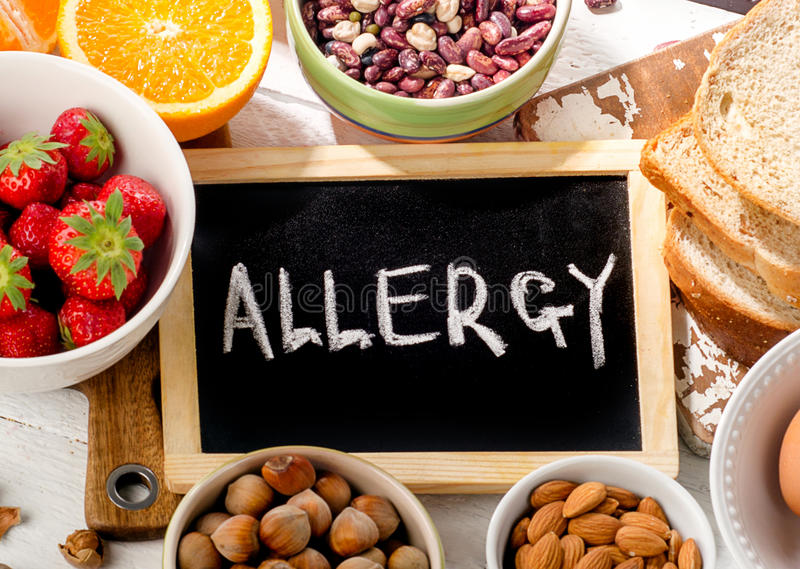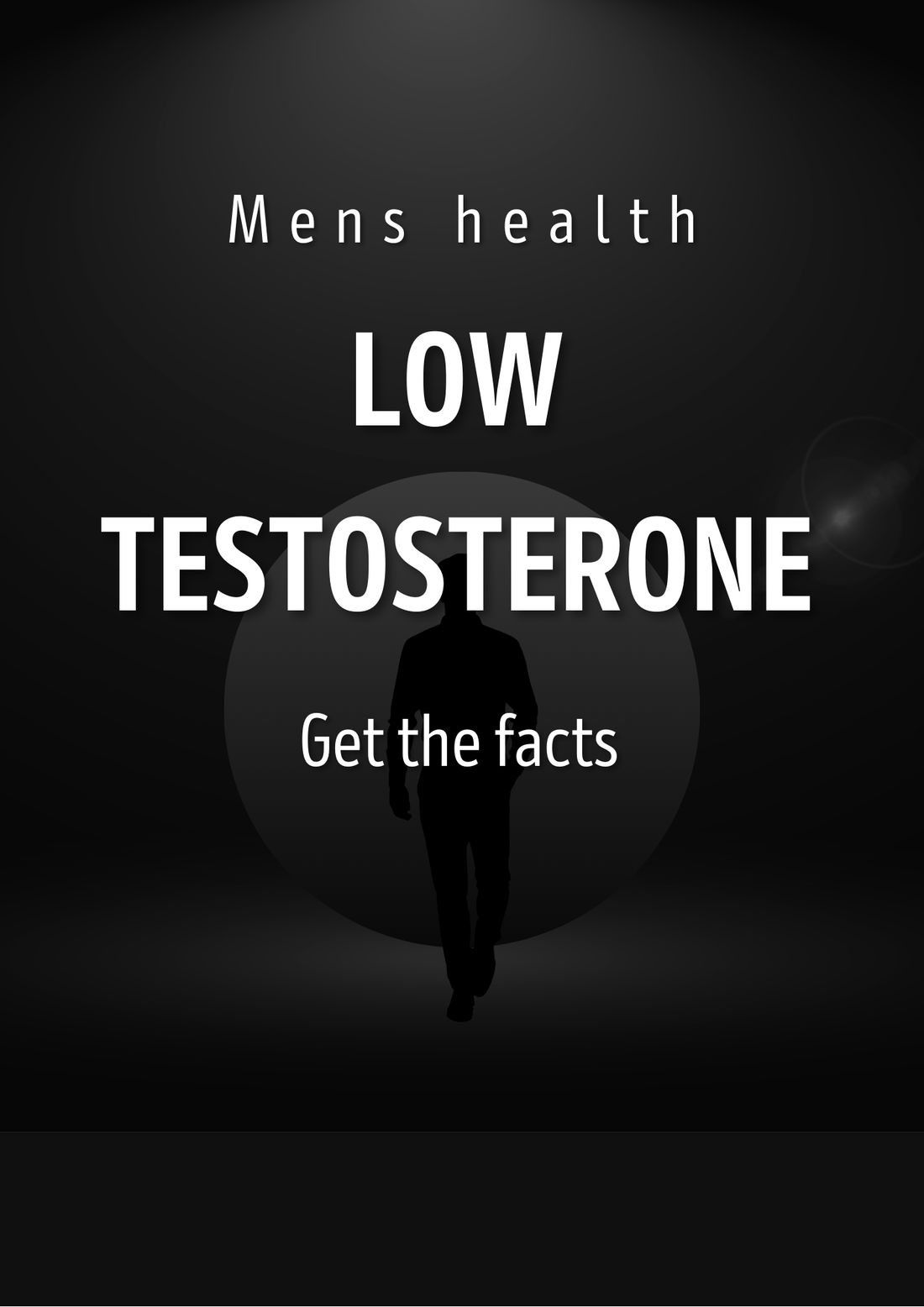Click here for asthma UK https://www.asthma.org.uk/.
Click here for information on Hayfever and all allergies
https://www.allergyuk.org/types-of-allergies/hayfever/

The latest surveys show that the rates of allergy are increasing throughout the world, affecting up to 30-35% of people at some stage in their lives. This increase was initially seen in countries such as the UK, Europe and USA, but can now be found in all countries undergoing industrial development.
The pattern of allergy is also changing – initially, the increase was in asthma and allergic rhinitis (hay fever). However, recent studies have confirmed a significant increase in the incidence of food allergies, in particular amongst children. In the UK, it is estimated that up to 50 per cent of children are diagnosed with an allergic condition.
However, do not despair while reading this. For parents worried about food allergies, most children with a food allergy outgrow their allergy during childhood. This is particularly true for allergy to cows milk, wheat and hen’s eggs. For a few children, allergies to any of these foods can persist. Anaphylaxis UK have a very important fact sheet about outgrowing allergies and it can be accessed here.
https://www.anaphylaxis.org.uk/fact-sheet/outgrowing-a-food-allergy/

It is important though people realise that you DON'T grow out of asthma. Many children have wheezing in childhood, caused by respiratory illnesses, but genuine asthma is not usually diagnosed until your are around the age of 5 or 6. But if you are diagnosed with asthma, and the diagnosis is correct, you will always have asthma. You may have many years of remission, but your asthma can resurface at any time.
What is an allergy?

Allergy is caused when the body’s immune system reacts to a normally harmless substance, such as pollen, food, or house dust mite. The body identifies the substance as a threat, and produces an inappropriate, exaggerated response to it. This can be relatively minor, such as localised itching, but in more severe cases it cause anaphylaxis, a condition which can lead to upper respiratory obstruction and collapse and can be fatal.
So what is causing all these allergies?
Genetics
Children born into families where allergies already exist have a higher than average chance of developing allergies themselves. In the UK today, children have a one in five predisposition to develop an allergy. However, the risk is doubled if one parent has an allergy (particularly if that parent is the mother). If both parents have allergies, the risk is increased to 60-80 per cent. This increased tendency for individuals to develop allergies because of their genes is known as being atopic.
Atopy results in an increased risk to any allergy, not just a specific type of allergic disease. So a child whose parents suffer from hay fever is no more likely to develop hay fever than asthma or food allergy. Similarly, the severity of the allergy in a child bears no relation to the severity of the parents’ allergic disease.
So we do know that if you have parents with allergies, you are more likely to have an allergy yourself. However - there is alot we don't know but here are some theories.....
Environmental Hypothesis
Atopy/genetic tendency alone cannot account for the current increase in allergy seen over the past few decades. Current research is investigating the effect of the environment in which we live, on genetic factors. It is now clear that many genes can be ‘turned on or off’ by environmental factors. For example, viral infections are able to alter our immune systems by switching certain genes on or off, promoting an allergic tendency in immune cells. However, this hypothesis has not yet been proven.
The Hygiene Hypothesis

This suggests that the immune system needs to come into contact with a variety of micro-organisms and bacteria while it is developing at the infant stage, in order that it responds appropriately later in life. We now live in an environment where we use cleaners containing anti-microbial agents, and food preparation is more hygienic than ever before. We know children who are in regular contact with farm animals (children that live on a farm) and those in regular contact with pets, have lower incidences of allergies. However, the hygiene hypothesis has not yet been proven.
But you all know I'm a huge fan of probiotics and feeding your good bacteria. You can link to some of my talks about probiotics here.
https://admin.shopify.com/store/melvin-pharmacy-2009/articles/604644344106
You can also listen to the radio show I did about probiotics here
For Gut Sake – Siobhan McNulty Melvin Pharmacy Garrison on good Gut Health
My favourite probiotic is Symprove. It can be taken by both adults and children, and breast feeding or pregnant women. As it is water based, it makes it to the gut alive, where it colonises your gut with millions of good bacteria.

To find out more about Symprove, click here
https://admin.shopify.com/store/melvin-pharmacy-2009/products/8001243250986
Changes in the foods we eat

Our diets tend to include more processed foods and less fruit and vegetables. It has been suggested that the increase in food allergy might be due to more allergenic foods, such as peanuts, in our diet. However, there is no evidence that this has happened, and many cultures traditionally eat high amounts of certain allergenic foods, for example, peanuts in some Asian communities.
The most common triggers of allergic reactions are:
- Pollen from trees and grasses
- Proteins secreted from house dust mites
- Moulds
- Foods such as peanuts, tree nuts, milk and eggs
- Pets such as cats and dogs, and other furry or hairy animals such as horses, rabbits and guinea pigs
- Insects such as wasps and bees
- Medicines (these may cause reactions by binding to proteins in the blood, which then trigger the reaction).

Common symptoms of an allergic reaction include:
- Sneezing
- Wheezing / coughing / shortness of breath
- Sinus pain / runny nose
- Nettle rash / hives
- Swelling
- Itchy eyes, ears, lips throat and mouth
- Sickness, vomiting & diarrhoea
Call 999 if:
-
you get a skin rash that may include itchy, red, swollen, blistered or peeling skin
-
you're wheezing
-
you get tightness in the chest or throat
-
you have trouble breathing or talking
-
your mouth, face, lips, tongue or throat start swelling
You could be having a serious allergic reaction (anaphylaxis) and may need immediate treatment in hospital.

If you have an adrenaline auto-injector, know how to use it. Different auto injectors work differently. Epipen, Emerade and Jext are administered differently - be sure you know how to use yours. Always carry 2 on you at all times, and ensure they are in date.
If you or someone you're with is having a serious allergic reaction and has an adrenaline auto-injector, you should use it immediately.
Instructions are included on the side of the injector if you forget how to use it or someone else needs to give you the injection. The following video shows you how to use an Epipen.
What should I do if I suspect I'm allergic to something?
If you think you may be allergic to something and do not know what it is, you should start to keep a record of your symptoms. In particular, the following information may help your doctor make a diagnosis:
-
Do your symptoms occur at any particular time of the day?
-
Do you only get symptoms at certain times of the year?
-
Do you suffer more at night time or during the day?
-
Do your symptoms occur when you are in the house as well as outside?
-
Does exposure to animals bring on your symptoms?
-
Do you think that any food or drink brings on your symptoms?
-
Do the symptoms occur every time you come into contact with the allergen?
-
Do your symptoms improve when you are on holiday?
A GP may arrange some allergy tests or refer you to a specialist allergy clinic to have them.
Tests you may have include:
-
a skin prick or patch test – where a small amount of the allergen is put on your skin to see if it reacts

-
blood tests – to check for allergens that may be causing your symptoms
-
a special diet where you avoid or eat less of a food you might be allergic to, to see if your symptoms get better
Do not buy home allergy kits. They are usually not accurate and are a lower grade than professional kits.
How do I manage my allergy?
Avoidance is the best defence against allergies and medication will relieve symptoms but will not change the allergic response.
Allergies have a significant impact on peoples’ lives. They live in fear of a severe allergic reaction, planning their lives or those of their children around safe food choices, avoiding situations where they are at risk and carefully planning the things that most of us take for granted, such as travel and social occasions, to avoid the triggers that make them ill and could cause a fatal reaction.
If your allergy is a food allergy, chat your GP before eliminating any foods.
There are also several medicines available to help control symptoms of allergic reactions, including;
-
Antihistamines – these can be taken when you notice the symptoms of a reaction, or before being exposed to an allergen, to stop a reaction occurring
-
Decongestants – tablets, capsules, nasal sprays or liquids that can be used as a short-term treatment for a blocked nose
-
Lotions and creams, such as moisturising creams (emollients) – these can reduce skin redness and itchiness
-
Steroid medicines – sprays, drops, creams, inhalers and tablets that can help reduce redness and swelling caused by an allergic reaction
What is a food allergy?

A food allergy is when the body’s immune system reacts unusually to specific foods. Although allergic reactions are often mild, they can be very serious. In the most serious cases, a person has a severe allergic reaction anaphylaxis, which can be life threatening.
Call 999 if you think someone has the symptoms of anaphylaxis, such as: Ask for an ambulance and tell the operator you think the person is having a severe allergic reaction.
Most children that have a food allergy will have experienced eczema during infancy. The worse the child’s eczema and the earlier it started, the more likely they are to have a food allergy. It’s still unknown why people develop allergies to food, although they often have other allergic conditions, such as asthma, hayfever and eczema.

-
About 20% of infants under 2 years of age with moderate to severe eczema will have food allergy.
-
In infants under 2, food allergy can exacerbate existing eczema but there is no justification for manipulating diet or removing food until skin care has been fully optimised.

What are the symptoms of a food allergy?
Normally food allergy symptoms appear within a few minutes of eating the offending food, although they may be delayed by up to a couple of hours. The symptoms are usually those of ‘classic’ allergy, some of which are listed below:
-
Gut reactions: Abdominal pain, vomiting, diarrhoea
-
Skin reactions: Itching and swelling (rash or nettle rash)
-
Respiratory reactions: Runny nose, sneezing, wheeze, cough
Now at this point I know some people will say, I have some of those stomach types symptoms when I drink milk or eat bread for example - however, you may/may not have an allergy - you may have a food intolerance. These can be difficult to differentiate between, so see your GP.
What is a Food intolerance and does does it differ from food allergy?
A food intolerance is when you have difficulty digesting certain foods or ingredients in food. It's not usually serious, but eating the food you're intolerant to can make you feel unwell.
If you have a food intolerance, you usually get symptoms a few hours after eating the food or ingredient you're intolerant to.
Common symptoms include:
- diarrhoea
- bloating
- farting
- tummy pain
But there are lots of other possible symptoms, including headache, feeling tired or exhausted, feeling sick, constipation, joint pain or rashes.
Symptoms can last for a few hours or days.
Food intolerance never involves the immune system (with the exception of coeliacs) and never is life threatening.
This video explains food allergies and food intolerance really well

How can I manage my food allergy while eating out or on holiday?
-
Identify and avoid the food that gives you the allergy
-
Check food labels and restaurant menus carefully to make sure they do not contain the food you're allergic to
-
Tell friends, family, nursery, school and work about your allergy
-
Tell staff at restaurants and cafés about your allergy
-
Carry 2 adrenaline auto-injectors with you at all times, if youve had previous analphylaxis.
-
Tell airlines and cabin staff about your allergy before you fly
-
Wipe down surfaces in public before eating- carry antibacterial wipes.
Treatment for a food allergy
The best way to prevent an allergic reaction is to identify the food that causes the allergy and avoid it. Research is currently looking at ways to desensitise some food allergens, such as peanuts and milk, but this is not an established treatment in the NHS.
- Avoid making any radical changes, such as cutting out dairy products, to your or your child’s diet without first talking to your GP. For some foods, such as milk, you may need to speak to a dietitian before making any changes. This is extremely important. There are essential nutrients in milk. Any child with a suspected cows milk allergy should be seen by a GP, a health visitor, a dietician or all 3.
- Antihistamines can help relieve the symptoms of a mild or moderate allergic reaction. A higher dose of antihistamine is often needed to control acute allergic symptoms.
- Adrenaline is an effective treatment for more severe allergic symptoms, such as analphylaxis.
What are the top 14 food allergens?
There are 14 major food allergens which need to be mentioned (either on a label or through provided information such as menus) when they are used as ingredients in a food product or meal. However you can be allergic to any food substance.

The most common allergic foods include:
- cows' milk
- eggs
- peanuts, soybeans, peas and chickpeas
- tree nuts, such as walnuts, almonds, hazelnuts, pecans, cashews, pistachios and Brazil nuts
- shellfish, such as prawns, crab and lobster
- wheat
But you can be allergic to any type of food, including celery, mustard, sesame seeds and lupin flour found in some baked goods.
You have a slightly higher chance of getting a food allergy if you or a close family member have other allergies, asthma or eczema. As mentioned at the top of the article, many children will grow out of food allergies by the time they are 16.
What is Natashas Law?
On October 1st 2021 a new law on allergen labelling, known as “Natasha’s Law”, came into force in the UK. It’s a huge change for the food industry but what does it mean for people living with food allergies and will it make them safer?
The new law says that food, freshly prepared, then packaged and displayed before being sold, has to have a label listing full ingredients and highlighting any of the 14 major allergens it contains.
This legislation is the result of campaigning by the family of teenager Natasha Ednan-Laperouse, who died in 2016 after eating a Pret A Manger baguette containing sesame.
Getting help with a food allergy
For concerns over suspected food allergy symptoms make an appointment with your GP or healthcare professional as soon as possible. If you or your child have a severe allergic reaction then do not delay in getting medical help, call for an ambulance and tell the operator it is anaphylaxis.
Go equipped
Taking photos and/or videos of allergic symptoms can help with a food allergy diagnosis.
Allergy UK is also a brilliant resource for anyone living with a food allergy
https://www.allergyuk.org/types-of-allergies/hayfever/
Ways to prevent food allergies
Food Allergies are more common in children, therefore we should also support pregnant and breast feeding mothers to ensure their child develops tolerance to foods before they can develop allergy responses
Help for teens and young adults with food allergies
https://www.food.gov.uk/safety-hygiene/advice-for-teenagers-and-young-adults-with-a-food-allergy
Pregnancy
- Mothers should be discouraged from restricting consumption of any potential food allergens during pregnancy as there is no evidence that this will prevent food allergy.
The first 6 months of infancy
- All infants should be exclusively breast fed until 6 months of age and breast feeding should be encouraged and supported in conjunction with weaning to solids for up to 2 yrs.
- There are no evidence based strategies for food allergy prevention during breast feeding. Mothers should be encouraged to eat a healthy balanced diet.
- There is no evidence that extensively hydrolysed formula prevent the development of food allergies.
Introducing solid food
- Well-cooked hen’s egg (mashed hard bolied), should be introduced into an infants diet as part of complementary feeding as soon as weaning begins to prevent egg allergy.
- Peanut should be introduced into the infant diet in an age-appropriate form (butter or crushed nuts) as part of complementary feeding to prevent peanut allergy. This should occur as soon as weaning begins and definitely before 1 year of life. A heaped teaspoonful 2-3 times per week is recommended. This should be continued throughout preschool years.
- It is recommended to avoiding supplementing with cow’s milk formula in breastfed infants in the first week of life to prevent cow’s milk allergy in infants and young children.
- There is no evidence that delaying introduction of any other allergenic foods; tree nuts, soy, sesame, wheat, fish and other seafood beyond 1 year of age can be recommended and so early introduction of these is also advised.

If you have concerns about specific food allergies, you can click here
https://www.ifan.ie/specific-food-allergies/
What is eczema?

Eczema, also known as ‘atopic eczema’ or ‘atopic dermatitis’ (used interchangeably to describe the same condition), is a common chronic inflammatory skin condition. Eczema affects people of all ages but is most commonly first seen in infants and young children.
There are many different types of eczema, and atopic eczema is one of the most common. ‘Atopic’ means it runs in families and/or affects those who already have other types of allergies. An atopic person is likely to have more than one allergic condition, such as eczema, asthma, hay fever or food allergy.
People with atopic eczema usually have periods when symptoms are less noticeable, as well as periods when symptoms become more severe (flare-ups).
- Dry skin
- Itchy skin (intense itch that cannot be relieved)
- Red and inflamed areas (eczema flares)
- Skin barrier becomes damaged (broken and cracked skin).
Can food allergies cause eczema?
Children are born with the tendency to have eczema, and many things can make their eczema worse. These are known as eczema ‘triggers’. Eczema in children can have various triggers, of which food can be one, especially in babies. However, foods are not the primary cause of eczema.
You may be asked to keep a food diary to try to determine whether a specific food makes your symptoms worse. Allergy tests are not usually needed, although they’re sometimes helpful in identifying whether a food allergy may be triggering symptoms.

Some foods, such as eggs and cows’ milk, can trigger eczema symptoms, but you should not make significant changes to your diet without first speaking to a GP. It may not be healthy to cut these foods from your diet, especially in young children who need the calcium, calories and protein from these foods.
If a GP suspects a food allergy, you may be referred to a dietitian (a specialist in diet and nutrition). They can help to work out a way to avoid the food you’re allergic to while ensuring you still get all the nutrition you need. If you’re breastfeeding a baby with atopic eczema, get medical advice before making any changes to your regular diet. And remember, many people who develop allergies, such as food allergies and eczema, may grow out of these.
When to seek medical advice
See a GP if you have symptoms of atopic eczema. They'll usually be able to diagnose atopic eczema by looking at your skin and asking questions, such as:
- whether the rash is itchy and where it appears
- when the symptoms first began
- whether it comes and goes over time
- whether there's a history of atopic eczema in your family
- whether you have any other conditions, such as allergies or asthma
- whether something in your diet or lifestyle may be contributing to your symptoms
Typically, to be diagnosed with atopic eczema you should have had an itchy skin condition in the last 12 months and 3 or more of the following:
- visibly irritated red skin in the creases of your skin – such as the insides of your elbows or behind your knees (or on the cheeks, outsides of elbows, or fronts of the knees in children aged 18 months or under) at the time of examination by a health professional
- a history of skin irritation occurring in the same areas mentioned above
- generally dry skin in the last 12 months
- a history of asthma or hay fever – children under 4 must have an immediate relative, such as a parent, brother or sister, who has 1 of these conditions
- the condition started before the age of 2 (this does not apply to children under the age of 4)
Treating atopic eczema

Treatment for atopic eczema can help to relieve the symptoms and many cases improve over time.
But there's currently no cure and severe eczema often has a significant impact on daily life, which may be difficult to cope with physically and mentally.
There's also an increased risk of skin infections.
Many different treatments can be used to control symptoms and manage eczema, including:
- self-care techniques, such as reducing scratching and avoiding triggers
- emollients (moisturising treatments) – used on a daily basis for dry skin
- topical corticosteroids – used to reduce swelling, redness and itching during flare-ups
I hope you have enjoyed this blog. Its large, there's lots to take in, and you may wish to read it in chunks.
What I really want people to take away from this, is the way allergies are changing, and the rise in food allergies. I also want people to know they should not start eliminating food stuffs, if they suspect a food allergy - unless of course they have had analphylaxis. Speak with your GP first, and remember many allergies will have resolved by the teenage years.
And as always, if you've any questions, always ask you pharmacist or GP.





